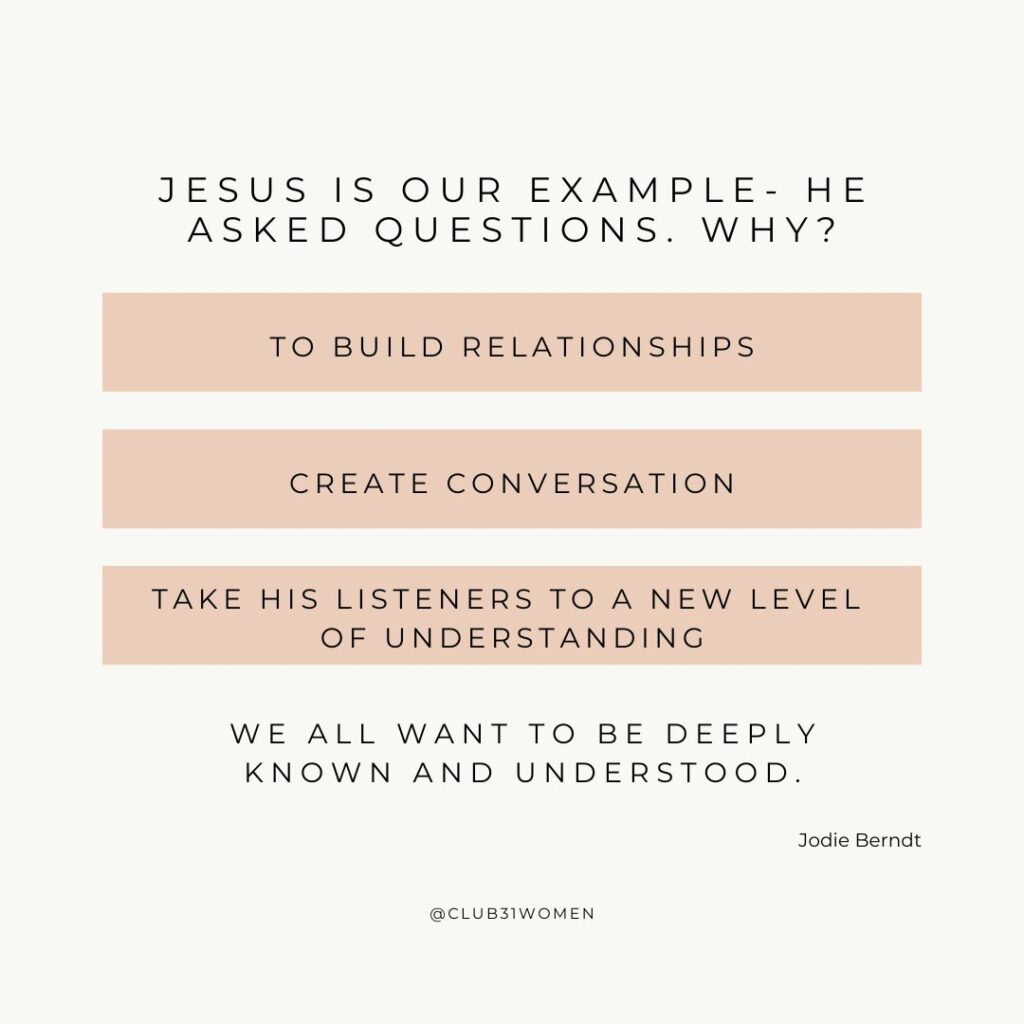Five Best Ways For You To Talk To Your Spouse
The way to talk to your spouse can set a foundation for a deeply foundational and connective marriage. Speaking in love sets the stage.
“Words kill, words give life; they’re either poison or fruit—you choose.“
Proverbs 18:21 MSG
My husband Robbie and I once hosted a large dinner party where, to ensure a good mix of conversation at every table, we seated guests according to whether we thought of them as a Q or an L. Everything was going well—everyone seemed engaged in some lively discussion—until one of the “L’s” noticed the scrap of paper I forgot to remove from under his plate and demanded to know what it was.

Not knowing how else to handle the situation, I confessed.
“You’re kind of loud,” I said, “so you got an L. The gal to your left is a bit quieter—she listens more than she talks—so she’s a Q.”
The room went silent for a beat and then erupted in laughter as the L’s began identifying (and congratulating) themselves on being the life of the party. The Q’s exchanged knowing glances, which made them seem mysterious and alluring.
Neither communication style is the “right” one; talkative or reserved, we all have room to improve. And when it comes to marriage, if we want to talk—and listen—to our partner with love, five strategies can help.
Five Strategies for Talking with Love
1. Set the stage
As unromantic as it might sound, good communication flourishes with a little advance planning. Pick a regular time to connect—whether it’s a weekly date night or ten minutes every morning over a pot of French press coffee—even if you don’t have anything major to discuss. That way, when something important does come along, the pathway to being present for each other will be comfortable and familiar.
2. Don’t expect your spouse to be a mind reader
I’ll never forget the gal who texted her fiancé on Valentine’s Day to say she did not need flowers. To her, that was a hint: she’d really like to get flowers. To him, it was confusing—especially because he had (fortunately!) already purchased a bouquet. Clear communication is key; we have to say what we mean. And if a topic is particularly important, it can help to ask, “Is this a good time to talk?” as a way to be sure that your partner is paying attention.
3. Keep it positive
Our brains retain more negative than positive thoughts, and the buildup from hurtful or disparaging words can create an atmosphere of hopelessness or resentment. We’ll obviously need to talk about difficult things, but we can choose how we frame these conversations. If finding something positive to say feels like a stretch, ask God to show you how He sees your spouse. Be alert to the beauty God reveals and speak that—both to and about your spouse. Studies show that speaking well of someone actually influences you to look on them more favorably and with greater appreciation! A win-win!
4. Be responsive
Every day, we make dozens of observations or requests of our spouse, often with something as simple as, “Look at that sunset!” When you recognize and reply to what’s been said (“Wow! That is beautiful!”), connection happens. When you ignore your partner (or pay more attention to your phone or the television), bonds break down. Look for ways to connect and show support for each other in the seemingly insignificant interactions of daily life.

5. Ask questions
Even the simplest queries—What’s the best thing that happened today?—can make your spouse feel valued and loved. Jesus understood the power and importance of questions, and he asked far more than he answered: Do you want to get well? Why are you so afraid? What do you think? (John 5:6; Matthew 8:26; 21:28)
Jesus knew all the answers, of course. His questions weren’t intended to produce information; rather, they were designed to build relationships, create conversations, and take his listeners to a new level of understanding. Which, at the end of the day, is what we all want in our marriages, right?
We all want to be deeply known.
We want to be understood.
It doesn’t matter if we are loud, quiet, or somewhere in between; we all want to be able to look at our spouse and ask what may well be the most powerful of all the Lord’s questions—Do you love me?—and know that the answer is yes.
In His Word
May the Lord make your love increase and overflow for each other and for everyone else. (1 Thessalonians 3:12 NIV)
In Your Life
Think about the communication patterns in your marriage. Do your words build up or tear down? Do you confide in your spouse? Ask good questions. If you don’t have a regular date night or “connection time” on the calendar, build that into your schedule. It may feel awkward at first, but trust God to work in and through your conversation as you build a marriage where intimacy and connection can flourish.
We Recommend
Read more about good communication and twenty other topics that impact every marriage in Praying the Scriptures for Your Marriage: Trusting God with Your Most Important Relationship. Preorder your copy today.

Let’s Connect
Connect with Jodie on Instagram and via her email newsletter, and please visit jodieberndt.com to access free resources like printable prayer cards and calendars, encouraging videos, and study guides for group or individual use.
